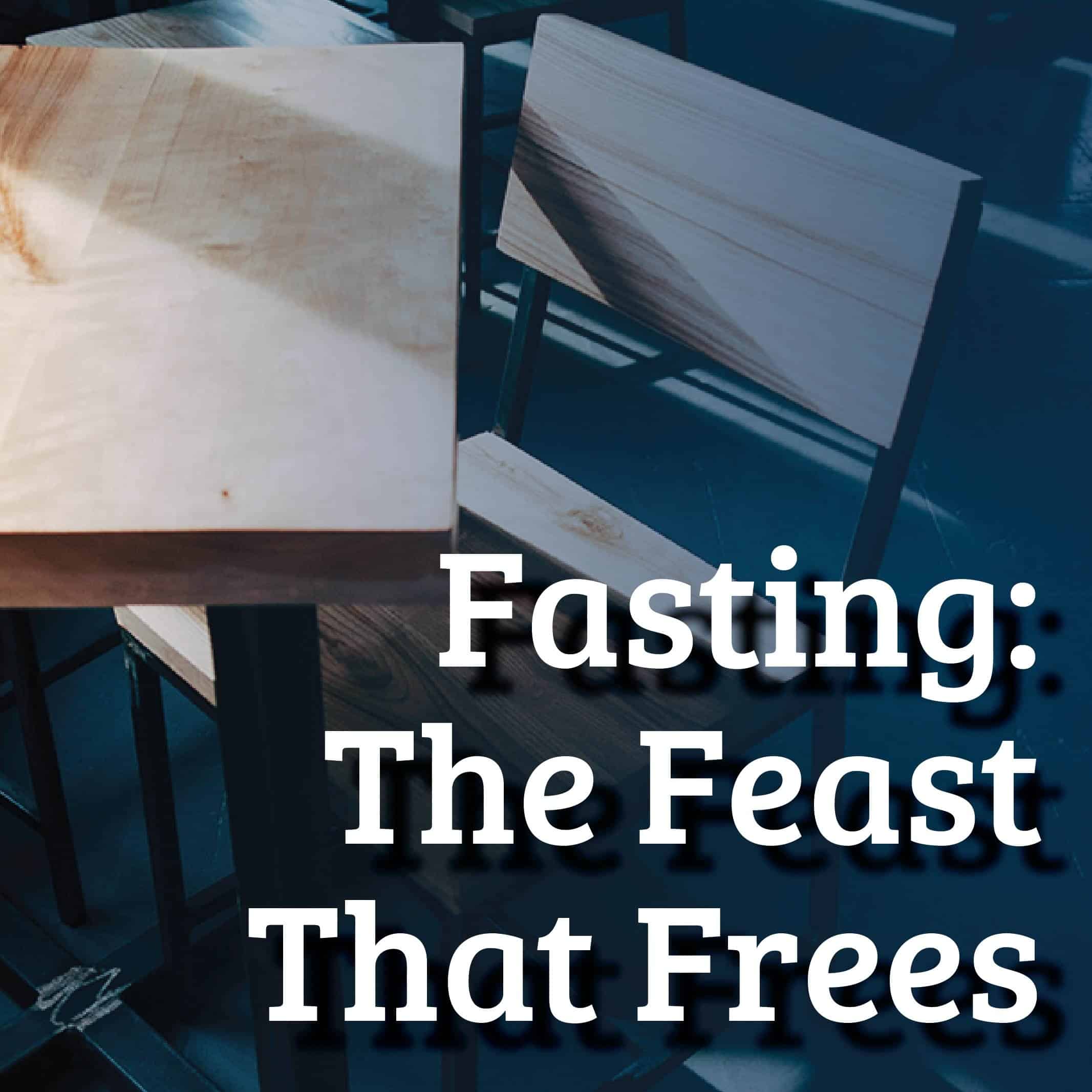We often join our hearts in prayerful fasting as a congregation. There are very real, rich, and profitable reasons for doing this. Fasting becomes a kind of feast and a celebration in spiritual dynamic. Let me share with you concerning this meaningful practice.
Fasting is scriptural: The Word of God makes it clear that fasting is an instrument of spiritual power, a key by which bonds of evil are broken and God’s counsels are received and established in the affairs of man (Isaiah 58:6-8; Mark 9:29; Acts 13:2, 3).
Jesus taught fasting: By His own word and example, Jesus taught fasting and said that in the era following His earthly ministry, it would be a part of the disciplines of His people (Matthew 4:2, 6: 16; Mark 2:20).
The Bible does not suggest that fasting is to be thought a means of earning God’s favor or of improving one’s status with God. Therefore, we do not fast as a religious or a superstitious exercise, hoping to gain God’s special attention or tip invisible scales of blessing in our direction. We believe every good thing that comes from God is a gift (James 1: 17) and is the product of His grace, not of human endeavor (Ephesians 2:8, 9).
However, the Bible also makes clear there are certain means by which Christ’s people partner with God’s almightiness through the acceptance and application of certain principles–“Kingdom Keys” they might be called. The Scriptures teach by both precept and example a number of means by which believers may enter into the exercise of spiritual dominion through simple obedience to disciplines taught in the Bible.
Along with such commonly acknowledged ones as (a) receiving of the Lord’s Table, (b) anointing with oil, (c) tithes and offerings, (d) worship and song, and (e) reading and studying God’s Word, it is also true that prayer joined with fasting is a proven means of advancing spiritual objectives. We know that we earn nothing by fasting, so in fasting we are not falling prey to the erroneous notion that a higher spiritual state is attainable through rigorous self-discipline. In contrast to this, however, we do believe that we learn something by fasting. We learn a simple, dynamic pathway to spiritual conquest.
We do not claim to know exactly why fasting with prayer is so powerful. But, the Bible makes clear that it is effective and important, and Jesus directed it as a part of His Church’s life. When the Holy Spirit gives a corporate call to united prayer and fasting, we respond in obedience.
The Objective of the Fast
In prayer, I have felt the Lord’s purpose for us in this fast is threefold. Having proposed it to the whole congregation, the overwhelming corporate response is that the Holy Spirit confirmed to virtually every heart that we are attuned to God’s Word and will for us in being called to fast.
A few reasons for this are:
1. There is a purging and purifying of the Body the Lord wants to accomplish.
Fasting is a means of physical cleansing in the physiological realm, and we believe the Lord is prepared to work in a special way to purge certain things from our lives as we wait on Him during days of fasting and prayer. Open the Word often, it cleanses (John 15:3). In prayer, confess sin and give place to cleansing (1 John 1:7). As Daniel and his companions refused the diet of the world around them and proved God’s superior workings in their own lives (Daniel 1), let us come with fasting before God and expect a purging from dead works and ways (2 Timothy 2:20, 21).
2. Because the spiritual battle is presently one of special crisis at both national and international points. As a congregation we live with a sense of biblical assignment to give priority to intercessory prayer for these issues, knowing that peace is contingent upon such prayer (1 Timothy 2:1-3). With a fast, we are mounting an offense in the arena of the invisible, fully confident that prayer for breakthrough can change the tangled problems of political, economic and military conditions throughout our world. With simple faith we are calling upon God to strike down wickedness, give leaders grace and wisdom, release people from oppression and overthrow the confusing works of flesh and evil.
3. Because there are family members and personal friends who need salvation and spiritual release. One of the most moving episodes in the ministry of Jesus is the deliverance and healing of a father’s son through the Savior’s power. The disciples wondered at the work Jesus did and asked why they were unable to master the demonic power involved, as they often had by the authority Jesus had given them. Jesus answered, “Because this kind (of demon) does not come out except by prayer and fasting” (Matthew 17; Mark 9).
Similarly, we understand the Holy Spirit to be saying that our prayer and fasting is ordained to be a means by which a new surge of grace will begin to enter circumstances that seem hopelessly bound up by both human and hellish devices. The promise sounding forth is that a new wave of evangelism and miracles are ready to break out across the earth. Our fasting and prayer is focused on seeing breakthrough move into our homes, our families and our circles of relationships.
The Observance of the Fast
The observance of a fast varies with each participant. Of course, the basic fast is observed by (1) frequent prayer during the day(s) of the fast, and (2) only receiving water as physical intake for the space of the fast.
We should avoid established religious procedure, and the guidelines should only be received as assistance and counsel for those wishing to participate, but for various reasons cannot observe a complete fast. Let no one feel forced to fast because of guilty feelings, or on the other hand, ease their flesh by fasting less than their personally God-directed, Holy Spirit-prompted duty and ability. Within those parameters, these guidelines may help to pursue a fast in what one leader called “the spirit of fasting.” In other words, abiding in the idea of the fast.
Practical considerations ought to be kept in view when fasting.
Because we are not trying to convince God of our worthiness, but rather are observing a biblically taught discipline, it is not unspiritual to recognize the functional realities at a physical level that ought to be understood.
1. Do not fast if there are medical or dietary reasons prohibiting it.
2. Always drink plenty of water while fasting, for it washes out physical impurities released into your system by the fast. (A squeeze of lemon in the water is helpful to this end.)
3. Some whose regimen cannot seem to tolerate a complete fast find that taking fruit juices helps them remain in the “spirit of the fast.”
4. Those who for any reason are unable to participate in going without food, often find the “spirit of the fast” is sustained by regular, disciplined times of prayer beyond their usual pattern of devotion or intercession.
5. People, whose work is of such a heavy energy expenditure that a total fast is outside reason, often find a measuring back of their food intake a kind of “offering.” Similar to the example of Daniel’s “partial fast.” Daniel 10:3 describes the prophet’s taking “no pleasant food” for an extended period of fasting, while he still served his role of duty in government offices. This voluntary reduction of intake, denying the flesh delicacies while still feeding the basic need for energy, is a fast more be applicable to some.
(*Practical wisdom recommends that a fast be concluded with a light meal to assist the body in resuming its digestive duties. In this case, soup or light breakfast fare without meat would be wise.)
The observance of a fast involves special prayer and waiting upon God. The idea of a fast is not the issue of self-denial but of seeking God.
Therefore, as a part of your time of fasting:
1. Give special times of prayer, praise and intercession. Dedicate specific times during the day, perhaps five-minute “prayer-breaks” or an entire lunchtime, to be given to the Lord in prayer.
2. Find occasion to agree in prayer. Seek out brothers and sisters in Christ who will join you daily in prayer. Their partnership becomes a strong bond of fellowship in a fast. Even telephone contact is dynamic, and through agreement in prayer the purpose of the fast is advanced.
3. Ask the Lord how much you should fast, and then obey Him. Jesus said, “My food is to do the will of Him who sent me” (John 4:34), and as we fast according to how the Lord calls us, we are feeding upon obedience to Him.
4. Take added time in the Word of God. David said, “Your Word is sweeter than the honeycomb” (Psalm 19: 10), and Jesus made clear the Word of God is nourishment to the soul as well (Matthew 4). Feed on it, and you will find strength for the fast.
The Offering of the Fast
Isaiah declared God’s will concerning fasting, and he emphasized God’s ordained fast is one of spiritual triumph and practical service (Isaiah 58:6-8). Not only are yokes of spiritual bondage and oppression broken, but physical needs are met, as well, for those who fast.
It is our practice to give an offering in conjunction with fasting, comprised of those monies we did not spend for our food and sustenance, converting those funds into resources to feed the hungry and clothe the needy. At the conclusion of our fast, we bring this offering and give together. Our church offices distribute these monies through agencies not only honoring to Jesus Christ, but who also feed the hungry in desperate regions around the world. By this means, we relieve human need at a physical dimension, while paving the way for the advance of the Gospel at a spiritual one.





